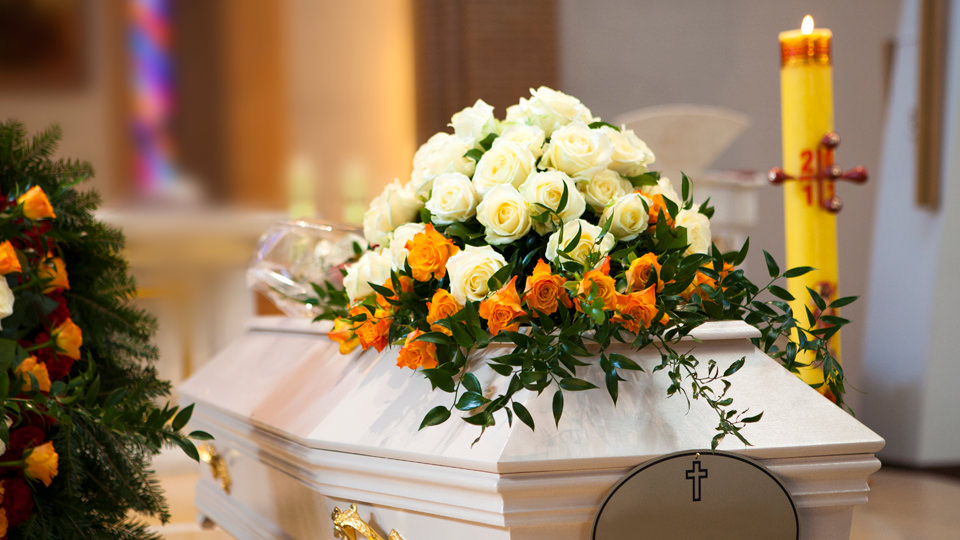Funeral services are conducted only for those people who are Orthodox Christians in regular Canonical and Spiritual standing with the Church. In other words, only those people who have been Baptized and Chrismated in the Orthodox Church and have had their marriage blessed in the Orthodox Church are eligible for an Orthodox Christian Funeral.
Should there be a death in the family, the following steps should be taken:
1. Immediately notify the family doctor or the County Medical Examiner if the death occurs at home. He must examine the deceased and sign the death certificate. The body cannot be removed otherwise.
2. Call the priest.
3. Call the funeral director of your choice.
Funeral Arrangements:

A Funeral Service May Not Be Held in Cases of:
Suicide — As no one is permitted to take the life of another, likewise no one is permitted to take his/her own life; that is, suicide is viewed by the Church as self-murder and consequently as grave sin. Only when a doctor certifies that such a person had lost his/her sanity and when permission of the Bishop is given can a Church funeral be held.
Cremation — Cremation is absolutely forbidden by the Church as being blasphemous to the body of man which is “the temple of the Holy Spirit”. Cremation is contrary to the faith and tradition of our Church and is forbidden to Orthodox Christians. A Church funeral is denied a person who has been or will be cremated.
Memorial Donations
Some families prefer Memorial Donations to flowers. If this is the choice of the family, mention should be made to the funeral director so that notification can be placed in the Obituary. Acknowledgments to the donors are made by the Church Office and a list sent to the family.
Makaria – Funeral Luncheon
The Makaria meal following the funeral service serves as a means of comforting the bereaved family and expressing thanks to those who attended the services or assisted the bereaved family in their hour of grief.